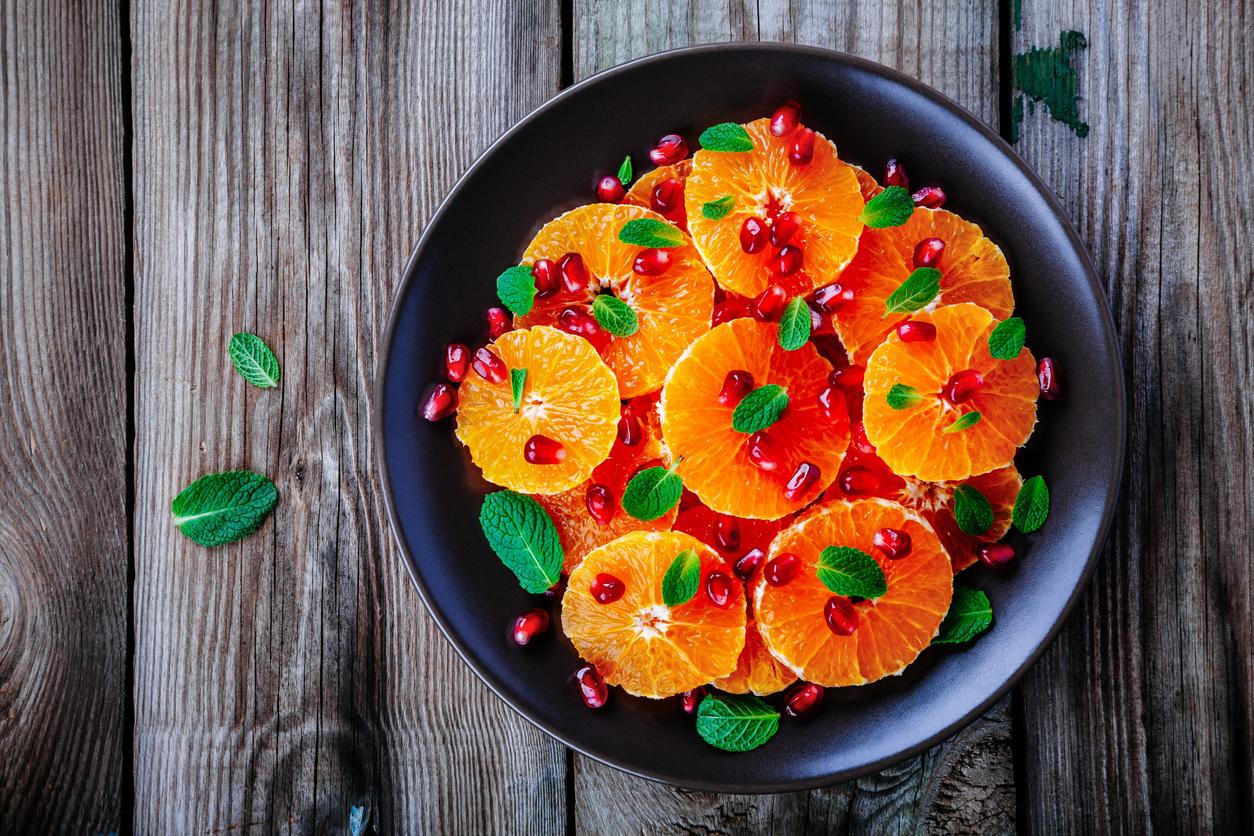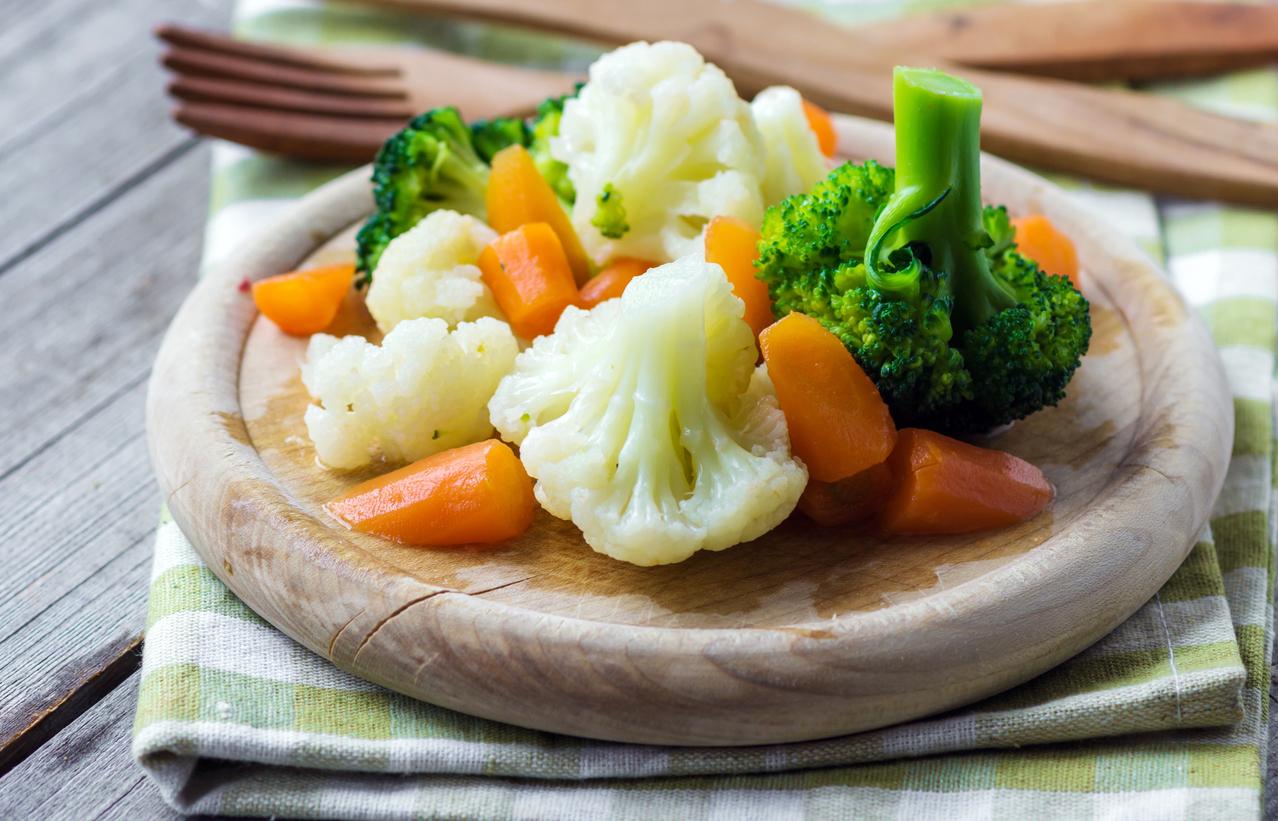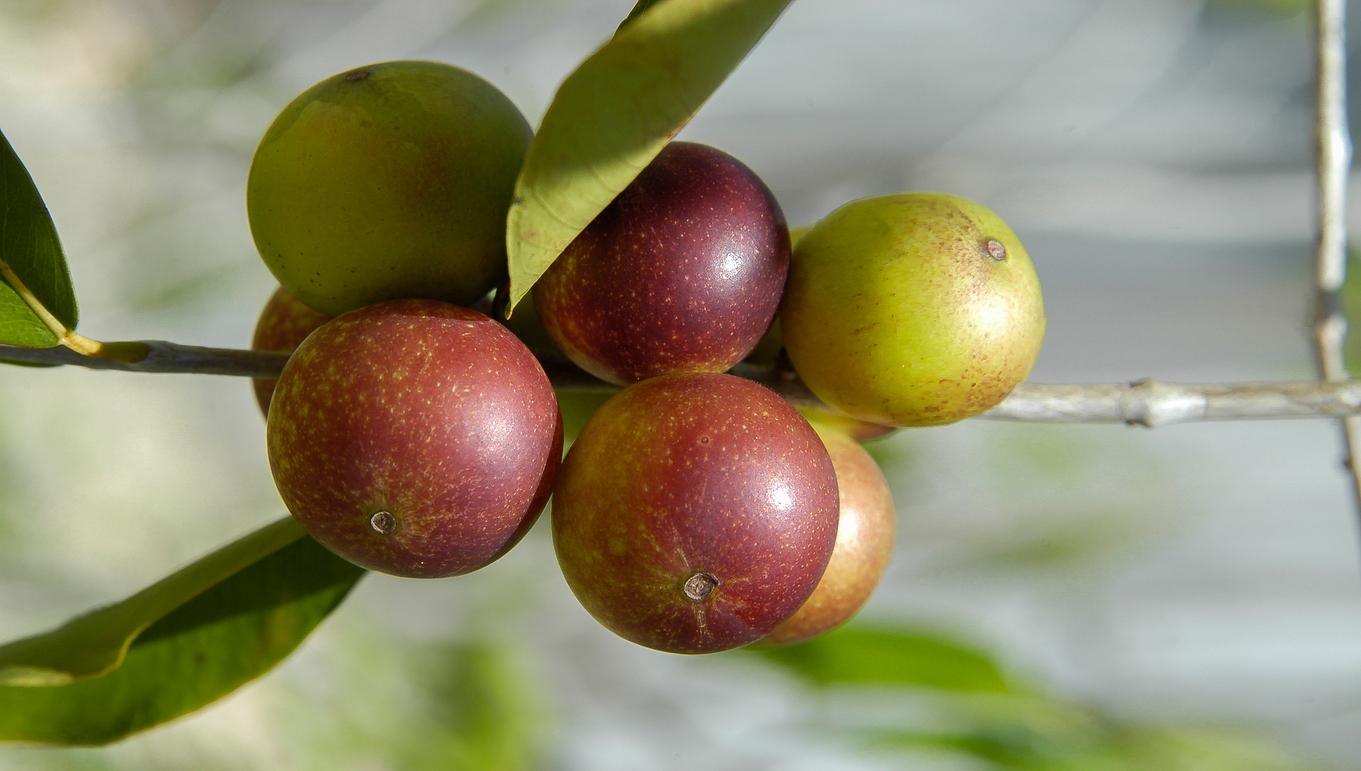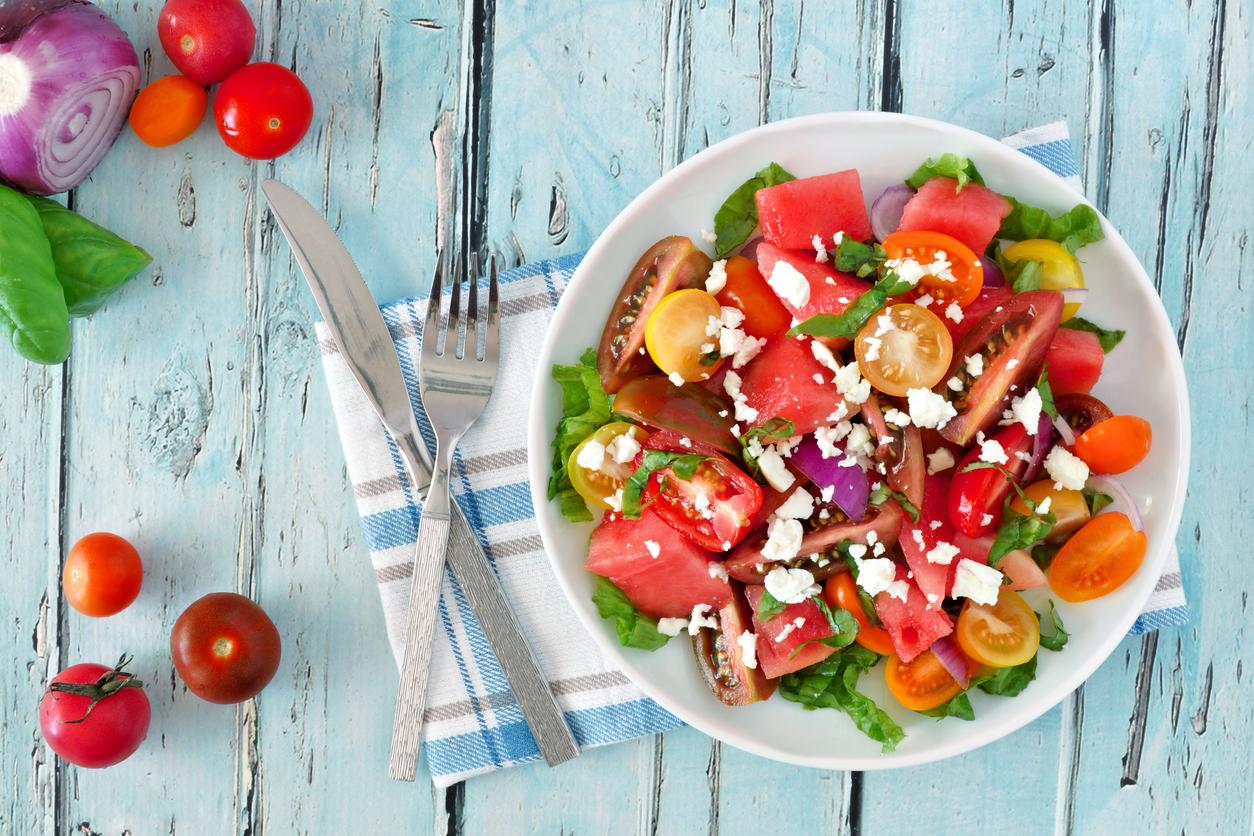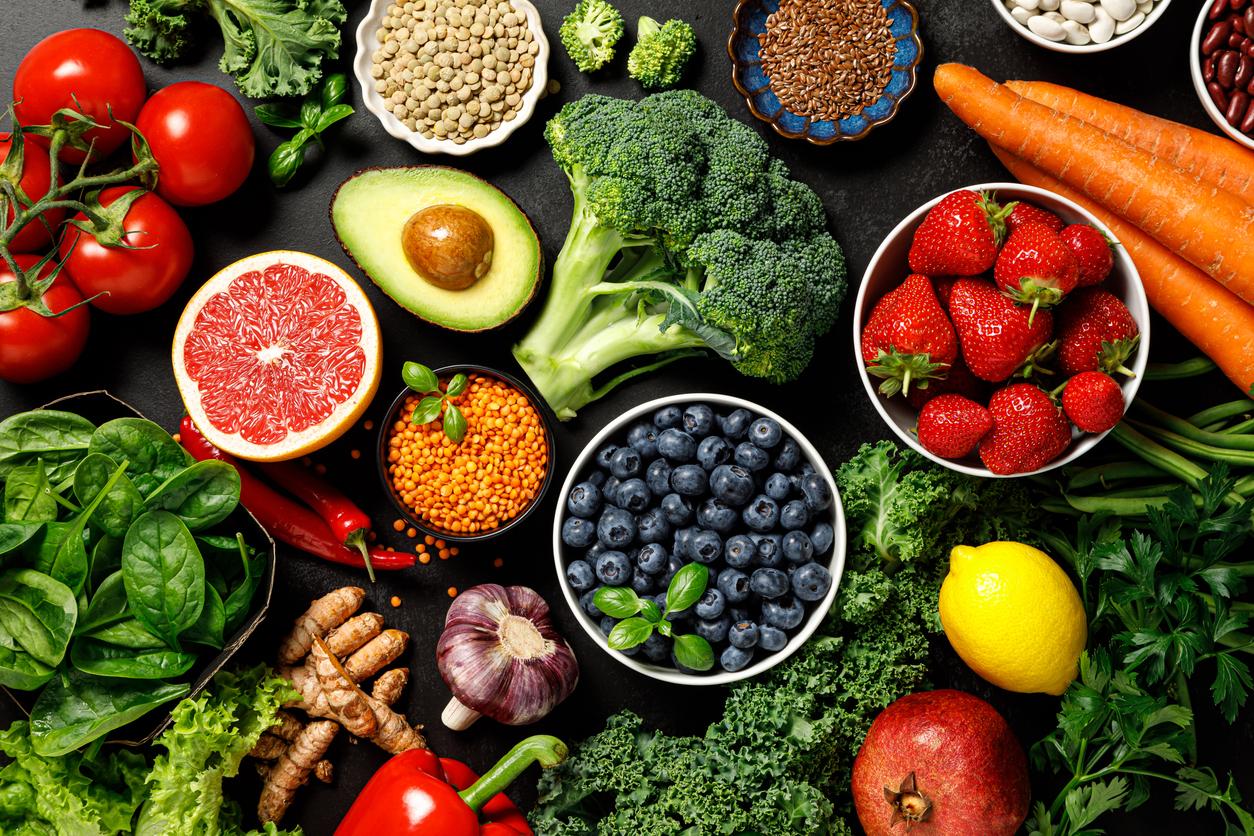Protective effect proven
Of course you know that fruits and vegetables deserve a place of honor on your plate. But do you also know why?
Eat 5 servings of fruit or vegetables every day. It is advice that has been hammered out for years. But why? Have we still not understood? “Since the early 1980s, numerous studies in various countries have shown that those who eat a lot of fruit and vegetables have a lower risk of certain diseases, diabetes, hypertension, cardiovascular disease, cancer, than those who eat little” , says nutritionist Hercberg.
Based on the same studies, it has been calculated from which daily amount the positive effects are noticeable. It turned out to be 400 grams. “We then decided to translate that amount into a recommendation that the consumer can more easily grasp and apply: 5 servings of fruit or vegetables per day. It cannot be the intention that the consumer weighs his food down to the gram and obsessively working on it,” he continues. So that’s where the advice comes from.
Protective effect proven
To what the protective effect of fruits and vegetables is due? “To be honest, that’s still just guesswork. We do know that these foods contain various substances, antioxidant vitamins, fiber and polyphenols, all of which seem to have a beneficial impact. But we don’t yet know exactly which substance acts on which condition. fruits and vegetables therefore have other efficient molecules that we have not yet recognized as such,” says the researcher.
Hence the importance of continuing to conduct studies. Broadly speaking, this is also the objective of Nutrinet2, a large-scale research project via the Internet that aims to gain a better understanding of the relationship between nutrition and health in France. Currently, 150 000 participants, and the target is to reach 500,000 in 5 years’ time, have agreed to provide information on their eating habits. “This project is not satisfied with a global approach: for example, we study each fruit and vegetable separately and we examine its impact on each form of cancer, breast cancer, colon cancer, prostate cancer, and on any cardiovascular disease”, Hercberg clarifies. A project that deserves to be followed in the rest of Europe.
Hesitant consumer
Should you eat apples or cabbage for colon cancer? Spinach or pomegranate to avoid a stroke? We will have to wait a while for such very precise guidelines. But it is certain that fruit and vegetables in general benefit your health. In addition, they are great for fluid balance (because they contain so much water), they promote intestinal function (because they are so high in fiber) and they keep you slim (because they provide so few calories). Strange that, despite all these assets, they apparently fail to seduce us…
It is estimated that 60 percent of adults remain below the guideline of 5 servings of fruits and vegetables per day. Just over a third (35 percent) even eat less than 3.5 servings a day. “But even those who do not achieve the target figure, for example who only eat one or two portions of fruit and vegetables a day, should not lose heart. Even one extra piece of fruit has a beneficial effect on health, which has been proven”, pleads the nutritionist.
And many more misconceptions
How to put more fruits and vegetables on your plate? First of all, by not believing in a number of prejudices that still do the rounds. For example, vegetables and fruits are in look or from the freezer no less healthy than fresh. “On the contrary, they are packed soon after harvest or picking, retain all their vitamins and do not have the time to lose their nutritional value under the influence of air and light. Canned foods or frozen products are often handy and cheap. So why should we not use them?” notes the specialist.
Two more persistent dogmas that many are discouraged by are that you should only steam vegetables (because that cooking technique would preserve the vitamins best) and that you should go grocery shopping every two days (to avoid overcrowding fruits and vegetables). long in your fridge and all their vitamins would lose). “The facts referred to here are correct, but the consequences are far too drastic. The most important thing is that you enjoy fruits and vegetables and make your life easier. If you prefer puree to steamed vegetables, you don’t have to worry about to worry who just ééCan’t do the shopping once a week, either. In the end, there will always be vitamins left over. And no study has ever shown that the fibers and the polyphenols are affected by any cooking or storage technique,” concludes Hercberg.
Variety is important. “We are currently discovering that there are hundreds of different polyphenols to exist. It is now established that citrus fruits, for example, have other advantages than red fruits. That is why the palette really has to be as varied as possible”, the researcher points out. Although, if you really don’t like anything else, you are still better off with only green beans and apples than with nothing at all.
Sources):
- Plus Magazine










